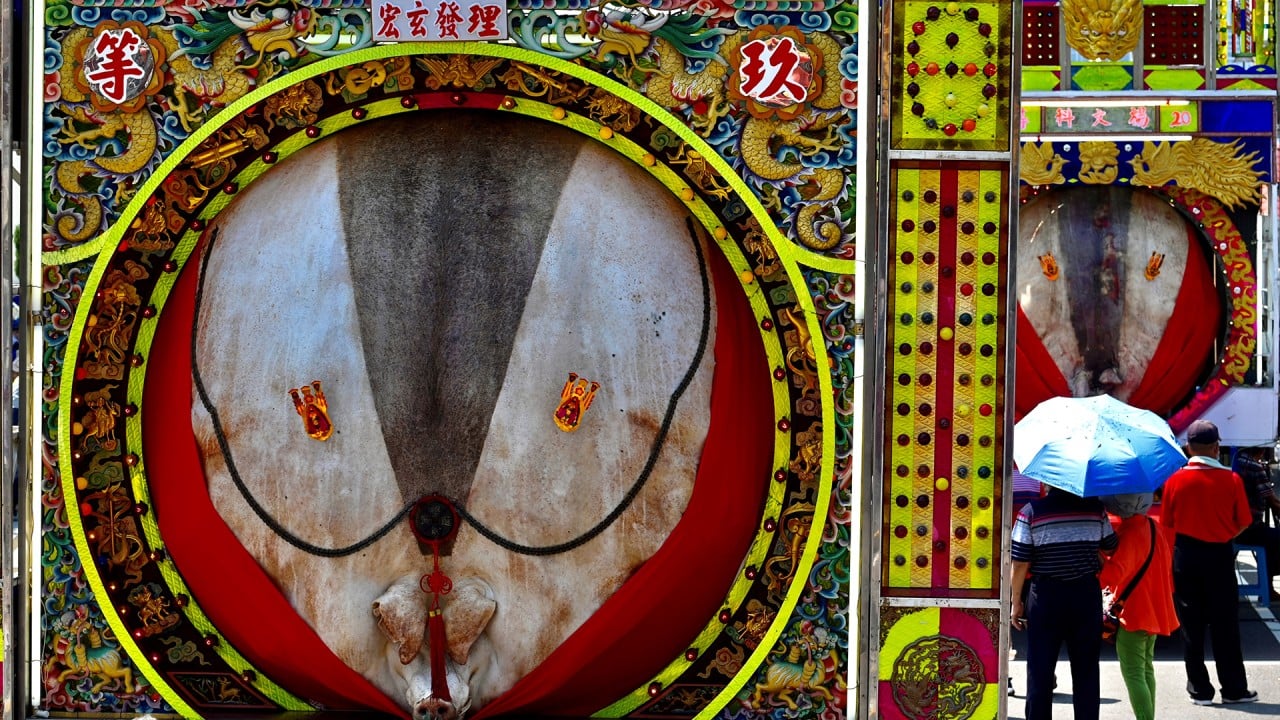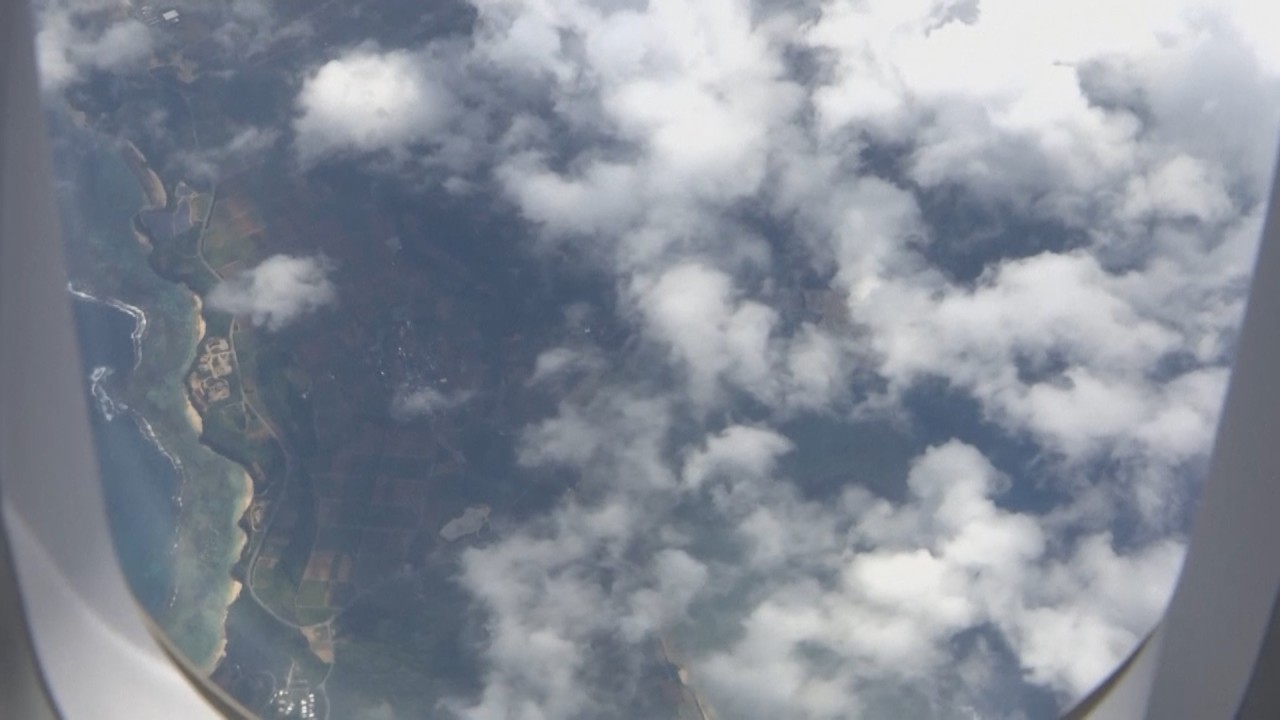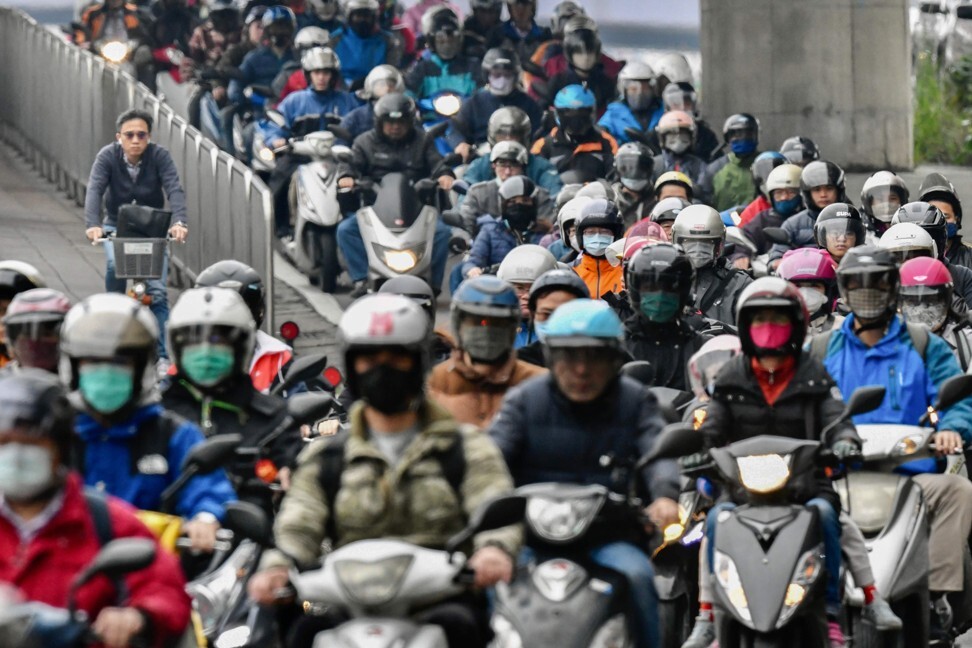Taiwan’s shrinking population forces government to woo overseas talent, retrain workers
- Births in Taiwan this year are expected to plunge to 166,351, the lowest level since records began in 1980, the island’s government says
- To offset its shrinking workforce, Taipei is retraining older workers, courting overseas talent and increasing financial incentives for parents

With Taiwan’s population set to decline this year for the first time, the government is rolling out a suite of measures to sustain productivity, ranging from importing foreign talent to retraining older workers and boosting childcare subsidies.
Like neighbouring South Korea and Japan, Taiwan is in need of skilled workers to bolster its shrinking workforce, which will confront “negative growth” by 2031, the government-funded Central News Agency has reported.
“The population trend is something that can’t be reversed,” said a senior official surnamed Chao from the National Development Council, a government planning agency. “There could be some areas where labour is insufficient.”
In the first half of 2020, Taiwan recorded 88,555 deaths and 79,760 births.
Total births this year are expected to plunge to 166,351, the lowest level since records began in 1980, according to the planning agency.
That level is expected to hold on average until 2043, when births will begin falling below 150,000 per year, the council said. For comparison, more than 413,000 babies were born in 1980, when big families were prized and childcare costs lower.
Last year, Taiwan recorded 176,296 deaths, up from about 69,000 in 1996, the first year the National Statistics agency published data.
None of this is good news for Taiwan’s workforce. The industries with the highest employee vacancies today are textiles, rubber and precision machinery, according to the National Statistics agency.

04:33
Taiwan’s cross-generational co-living plan to help an ageing population and housing shortage
But the government is equally concerned with ensuring it has enough specialised talent to fill jobs in management, research and development, and technical jobs.
Under its Gold Card immigration programme, which began in 2018, Taiwan provides up to 2,000 visas annually of between one to three years to attract world-class professionals to the self-ruled island.
President Tsai Ing-wen presented the 1,000th Gold Card at a ceremony in September. Recipients have included YouTube co-founder Steve Chen and Mustafa Ozgur Baydarol, a Turkish tech specialist with 10 patents.
Applications for the visa are surging this year as foreigners seek refuge from lockdowns and health dangers caused by the Covid-19 pandemic, a source close to the programme said.
Taiwan has had one of the most successful responses to the virus, recording just 548 cases by Thursday since the outbreak began earlier this year.
“Over the last two years, we have seen growing numbers in international applicants, whether they are new graduates or experienced workers,” said a spokesperson for Taiwanese PC developer Acer, which employs 7,240 people. “So, we are definitely seeing more diversity in the talent pool in Taiwan.”
To further boost employment, legislators in November passed a law that offers government-sponsored training for people older than 45 if they are out of work or want to delay retirement.
The regulation also helps job matching and bars age discrimination by employers, which have been known to pressure older employees to quit or pass over older job applicants seeking to re-enter the workforce after absences to care for parents.
Some 80 per cent of workers above age 45 said they had experienced workplace discrimination and 84 per cent felt slighted when applying for jobs, according to a survey released in October 2019 by yes123, a jobseeker network.

01:56
Taiwan’s controversial ‘holy pig’ festival goes on despite cruelty claims
Tony Phoo, senior economist at Standard Chartered Bank in Taipei, said importing talent and retraining people should help Taiwan’s competitiveness, and so would automation.
“Automation and digitisation seem to have a greater impact in not just maintaining, but also helping to boost overall productivity,” said Phoo.
Phoo said Taiwan’s falling birth rate “is not an issue to be ignored, especially given the shortage of labour”.
Taiwan Semiconductor Manufacturing, which employees 49,000 people and is a bellwether for the global chip industry, was using “automation and digitalisation” to ensure optimal use of personnel, a company spokesperson said in a statement.
The company was also taking pre-emptive steps to ensure it had a sufficient pool of talent in the future, including by working with schools and governments, as well as recruiting from overseas.
To boost birth rates, the Taiwanese government will next year double its childcare subsidies from NT$2,500 (US$87) for households with children under the age of four, said Chao, from the National Development Council.
The government is also looking to increase the number of public kindergartens so parents can avoid more expensive private ones, Chao said.
Taiwanese parents without access to childcare are typically faced with the dilemma of giving up their careers or not having children at all, the public-private partnership Talent Circulation Alliance said in a 2020 white paper. Some fortunate couples can lean on their parents, who are often retirees, for childcare.
Internationally, cultivating talent and automation normally help productivity more than incentives targeting parents, Phoo said.

02:50
Airline in Taiwan offers flights that pass over Japan for tourists grounded by coronavirus
Like Taiwan, Japan and South Korea are grappling with low birth-rates and need skilled workers, especially to drive innovation in the tech space.
Japan, which recorded a record low birth rate in 2019, signed a deal with Pakistan last year that would allow migrants who pass a test and show they can speak Japanese to work in the country. It has similar deals with Cambodia, Nepal and Vietnam.
Meanwhile, it will take South Korea two decades to “engineer” a resumption of population growth, London-based forecasting and consulting firm Capital Economics said in a recent report.
“Boosting the number of babies would not make any difference to the near-term demographic outlook,” the report said.
Capital Economics recommended that South Korea, which logged its lowest-ever birth rate last year, consider allowing more immigration, raising the retirement age and encouraging more women to work.
